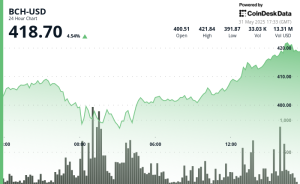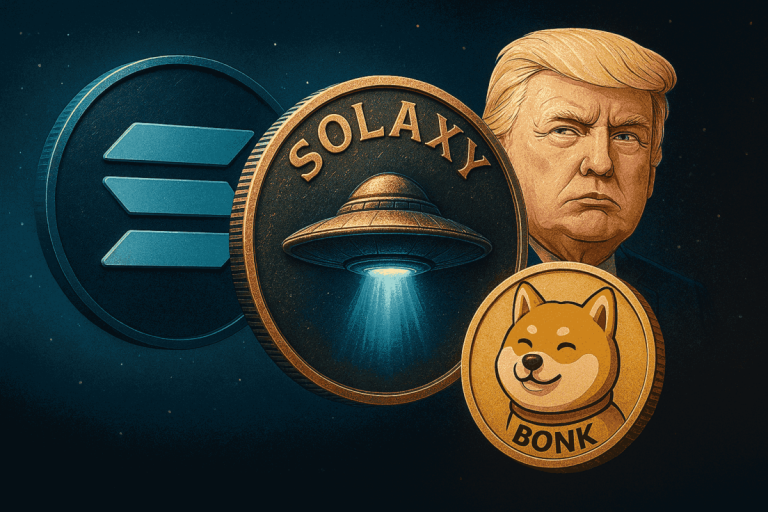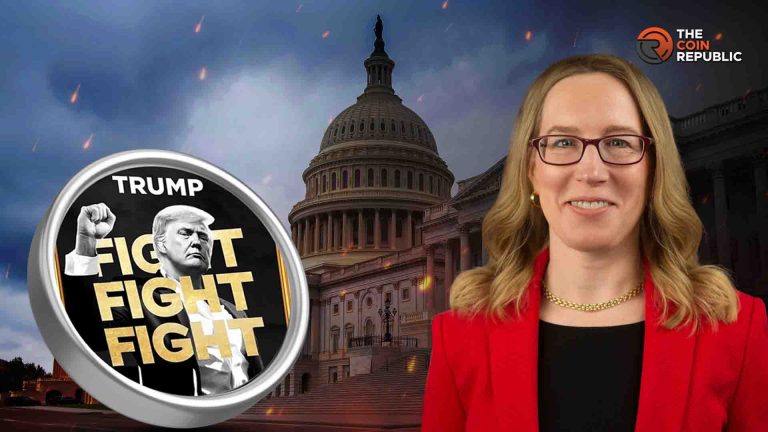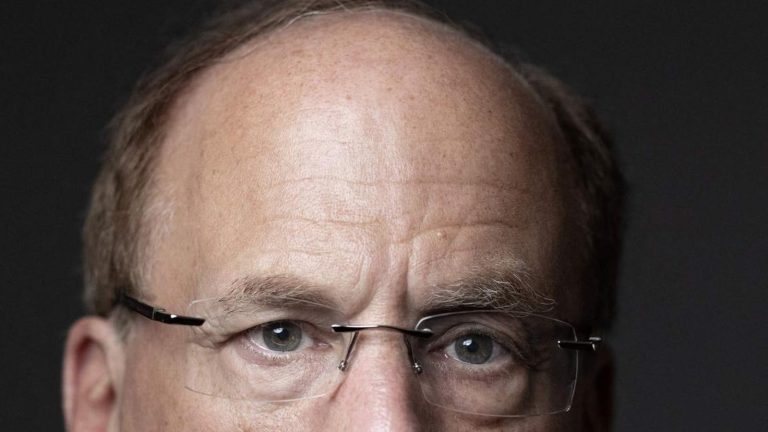Hester Peirce, commissioner of the US Securities and Exchange Commission (SEC), speaks during the DC Blockchain Summit in Washington, D.C., on Tuesday, May 24, 2022.
Valerie Plesch | Bloomberg | Getty Images
LAS VEGAS — Now that the SEC is out of the business of regulating meme coins, investors shouldn’t expect any guidance on $TRUMP, according to Hester Peirce, one of the agency’s veteran commissioners.
The SEC said in February that it does not deem most meme coins securities under U.S. federal law. That took the crypto tokens out of its purview just weeks after President Donald Trump launched his own meme coin and saw it immediately soar in value, lifting his paper net worth by billions of dollars.
Peirce told CNBC that it’s a similar situation to when nonfungible tokens (NFTs) gained popularity in 2021. They weren’t securities but they did rise and fall in value based on investor activity in the market. Peirce said the SEC missed an opportunity to announce publicly that the agency wasn’t getting involved.
“Here was something where I saw a lot of interest in this out in the world — in meme coins — and it made sense for us to say, ‘People, if you are expecting that there’s SEC protection around these, you should not expect that,'” Peirce said in an interview at Bitcoin 2025 in Las Vegas. “You can package almost anything into a securities transaction. But generally, it’s good for people to know, I should not be looking to the SEC for protection in this area.”
In other words, buy at your own risk.
Since President Trump took office in January, the SEC has been rolling back its enforcement in crypto, taking a more industry-friendly approach to the asset class. It’s a controversial strategy, as the president and his family deepen their involvement in crypto, profiting in a way that’s led many Democratic lawmakers to declare a clear conflict of interest.
The $TRUMP token, 80% of which is controlled by the Trump Organization and affiliated entities, has become the centerpiece of Trump’s expanding crypto empire.
Like most meme coins, the token has no underlying value. But after debuting in January, just ahead of the inauguration, $TRUMP soared to a $15 billion market cap, fueled by President Trump’s social media posts declaring, “It’s time to celebrate everything we stand for: WINNING!”
Within days, the token lost most of its value. Still, the project creators get a fee for every trade.
The White House previously told CNBC that Trump’s assets are held in a trust managed by his children, and there are “no conflicts of interest.”
But Sen. Richard Blumenthal, D-Conn., the ranking member of the Senate Subcommittee on Investigations, is among a growing list of Democratic lawmakers warning that the Trump family’s crypto holdings may serve as a backdoor for foreign and corporate interests seeking access to the president.
Meanwhile, crypto billionaires once targeted by regulators like the SEC are regaining political and financial influence.
On Thursday, the SEC dropped its long-running lawsuit against Binance and founder Changpeng Zhao, bringing to an end one of the most aggressive crypto enforcement actions brought by former SEC Chair Gary Gensler.
The agency had accused Binance of misleading investors, commingling customer funds, and allowing wealthy U.S. users to evade restrictions. After pleading guilty to federal money-laundering violations in November 2023, Zhao served just four months in prison and emerged with most of his crypto empire intact. Forbes now estimates his net worth at over $67 billion.
Leading up to the dismissal, Zhao had deepened ties to Trump-affiliated networks. As Binance prepared to list USD1, a new stablecoin that funnels profits to Trump-aligned entities, Zhao disclosed that he had applied for a presidential pardon from Trump’s Justice Department. Weeks later, Binance received a $2 billion capital injection into USD1 from an Emirati state fund.
Peirce rejected the idea the SEC’s actions are politically motivated.
“We didn’t have a clear set of rules,” Peirce said, regarding the Binance case. “There were a lot of questions about how this particular activity in the crypto space intersected with our existing securities laws. So we’re trying to take a step back, use our regulatory tools to write those rules, and then enforce those rules.”
That same philosophy guided the SEC’s January decision to rescind Staff Accounting Bulletin 121, a controversial directive that had effectively blocked traditional financial institutions from offering crypto custody.
“It wasn’t even a rule,” Peirce said. “It didn’t go through the normal process. it was just a pronouncement.”
She said the policy had the effect of excluding banks and other experienced custodians from participating in the crypto space.
“It said that lots of traditional entities that would have done custody for crypto, practically speaking, could not participate,” she said.
WATCH: Trump hosts exclusive gala for meme coin holders as lawmakers raise ethics concerns














